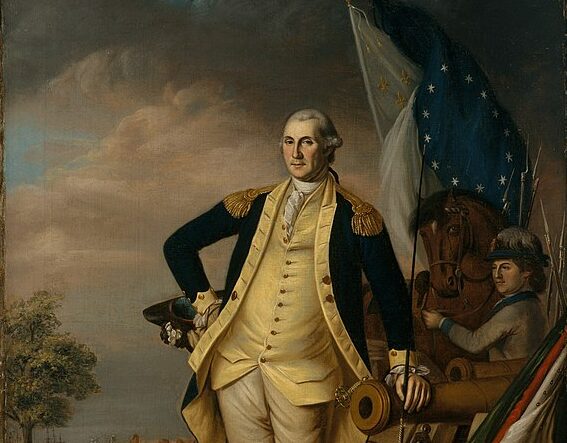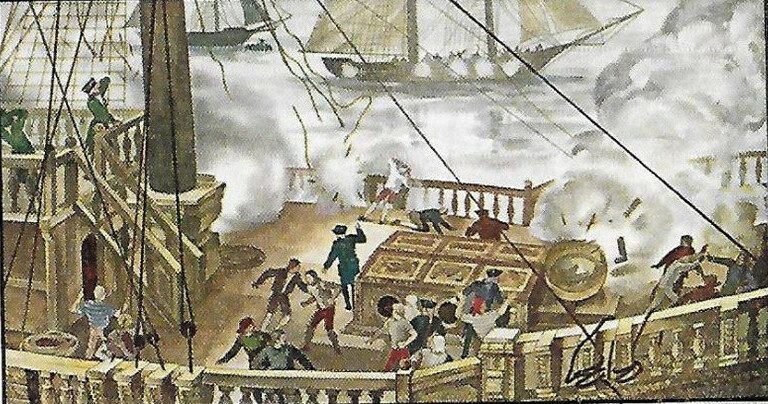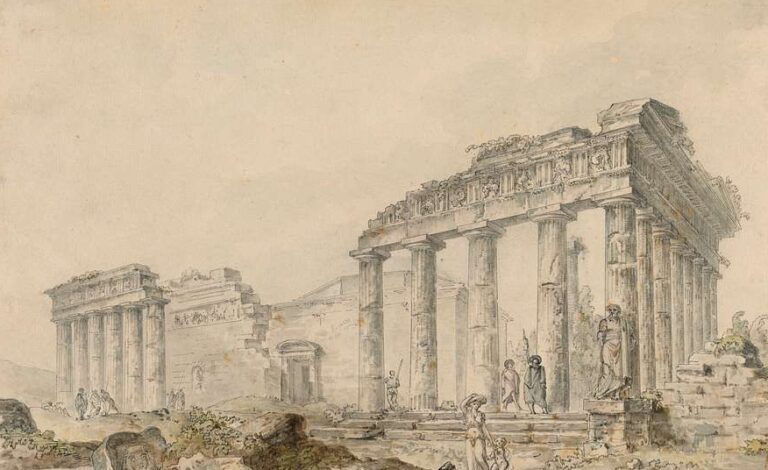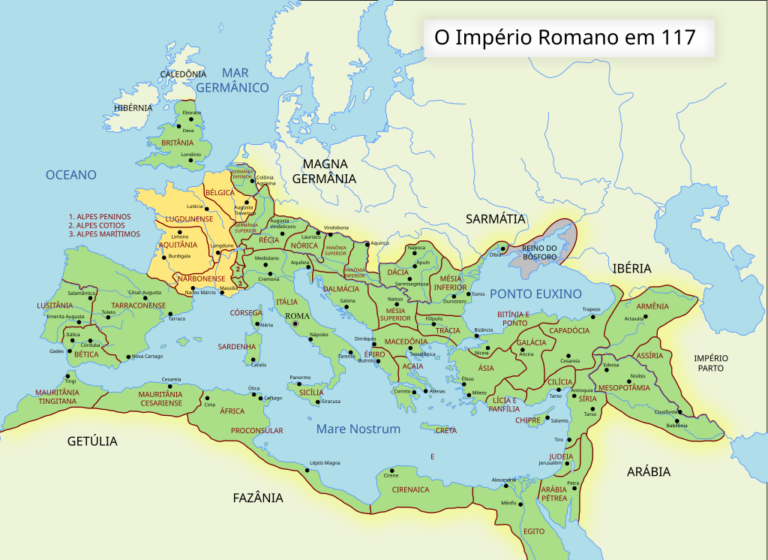
The net worth of the richest US presidents has varied significantly, with some amassing substantial wealth through inheritance, successful business ventures, or lucrative post-presidential opportunities. From George Washington’s sprawling estates to Donald Trump’s business empire, these leaders shaped the nation while building impressive financial legacies. Below is a list of notable presidents and their estimated peak net worths, adjusted for inflation, offering a fascinating look at the intersection of wealth and power in American history.
1. Donald Trump (2017–2021) – Approximately $7.5 Billion
Donald Trump, the 45th President of the United States, is widely recognized as the wealthiest individual to have held the office. His fortune primarily stems from real estate ventures, including notable properties such as Trump Tower in Manhattan, hotels, casinos, and numerous golf courses worldwide. He inherited a portion of his wealth from his father, Fred Trump, a successful real estate developer and businessman, who provided Donald with gifts, loans, and inheritance.
Trump significantly expanded his business empire over the decades, building a global brand. In addition to his real estate holdings, Trump earned money through the sale of Trump-branded products, including neckties, steaks, and even urine tests. He also generated substantial income from his role as the host of the reality television show The Apprentice and through branding deals associated with the Trump name.
2. George Washington (1789–1797) – Approximately $555 Million
George Washington, the second richest US president, was one of the wealthiest men of his time, and his fortune was built through a combination of strategic investments, personal ventures, and family inheritance. Much of his wealth came from his plantation at Mount Vernon in Virginia, which spanned thousands of acres and relied heavily on the labor of enslaved people. This plantation was a significant source of income through agricultural production, particularly tobacco, which was a cash crop in the region.
Washington’s wealth also grew through his employment as a surveyor, a position he held early in his career, which provided him with both income and access to valuable land. His service as a Continental Army officer during the Revolutionary War further bolstered his financial standing, as it led to the acquisition of additional land grants. Washington continued to increase his wealth by investing in bonds and corporate equities, diversifying his financial portfolio.
His marriage to Martha Custis, a wealthy widow, played a pivotal role in increasing Washington’s wealth. Through his marriage, he inherited significant property, including the Custis estate. Washington’s financial acumen extended beyond land and agriculture; he was also a successful distiller of whiskey at Mount Vernon. His distillery became one of the largest in the nation at the time, producing a profitable brand of rye whiskey.
3. Thomas Jefferson (1801–1809) – Approximately $282 Million
Thomas Jefferson, the third President of the United States, was another founding father who amassed significant wealth, primarily derived from his estate at Monticello in Virginia. Jefferson’s fortune was built upon the substantial landholdings and assets he inherited, including 52 enslaved African Americans and 2,750 acres of land from his father, Peter Jefferson, a planter who had made a name for himself in Virginia. In addition to his father’s inheritance, Jefferson’s marriage to Martha Wayles Skelton further expanded his wealth. From his father-in-law, John Wayles, Jefferson inherited 135 enslaved African Americans, including the Hemings family, and 11,000 acres of land.
Despite his impressive wealth on paper, Jefferson faced financial difficulties throughout his life due to his extravagant lifestyle, high levels of debt, and poor financial management. His land holdings, though substantial, often didn’t generate the steady income needed to support his personal expenses, and Jefferson’s heavy borrowing to maintain his lifestyle led him into financial trouble. In an attempt to alleviate some of his financial burdens, Jefferson sold his library of books to the U.S. government after the War of 1812. His collection formed the foundation of the Library of Congress.
4. Barack Obama (2009–2017) – Approximately $250 Million
Barack Obama, the 44th President of the United States, saw a significant increase in his wealth after leaving office. While his presidential salary of $400,000 annually was substantial, it was his post-presidential ventures that have contributed most to his net worth. Obama’s wealth is largely the result of lucrative book deals, high-paying speaking engagements, and production deals with major entertainment companies like Netflix. His best-selling memoirs, Dreams from My Father and The Audacity of Hope, earned him millions in royalties and laid the foundation for his post-presidency financial success.
In 2018, Obama and his wife, Michelle, signed a highly lucrative production deal with Netflix through their company, Higher Ground Productions. The deal was reportedly worth tens of millions of dollars and was part of a broader media expansion. In 2020, Obama released his memoir, A Promised Land, which was part of an unprecedented $65 million publishing deal with Penguin Random House. The deal also included Michelle Obama’s memoir, Becoming, which became a best-seller in its own right and contributed to their growing wealth.
In addition to their book deals, the Obamas’ real estate investments also played a role in increasing their net worth. They own a luxurious home in Martha’s Vineyard, among other properties.
Their influence in the media sector continued to expand in 2022 when Higher Ground Productions signed an exclusive worldwide, multi-project, multi-year first-look deal with Audible. As part of their ongoing Netflix deal, Barack Obama served as an executive producer for three major films released on the streaming platform in 2023. These films — Leave the World Behind, American Symphony, and Rustin — showcase Obama’s continued influence in the entertainment industry and reflect his commitment to telling important, impactful stories.
5. Bill Clinton (1993–2001) – Approximately $241 Million
Bill Clinton, the 42nd President of the United States, amassed his wealth primarily after leaving office, turning his post-presidential years into a period of financial success. Clinton earned a significant portion of his wealth through book deals, public speaking engagements, consulting, and advising private companies. His memoir, My Life, published in 2004, earned him a substantial advance and royalties, adding to his growing fortune. The book was one of four titles he published, contributing to an estimated $38 million in earnings from books between 2001 and 2015.
In addition to his writing income, Clinton commanded high fees for speaking engagements, reportedly earning up to $750,000 for a single appearance. His speaking career took off almost immediately after he left the White House. Just days after his presidency ended, Clinton earned $125,000 for a speech at Morgan Stanley Dean Witter & Co. in New York, according to a financial disclosure form filed by Hillary Clinton as a senator in 2002. This event marked the beginning of hundreds of paid speeches over the next 15 years, which collectively earned him an estimated $106 million.
Alongside his public speaking, Clinton engaged in consulting for private companies, which added to his wealth. He earned $15 million advising billionaire Ron Burkle’s investment firm, Yucaipa, and another $24 million consulting for for-profit education companies such as Laureate Education and GMS Education.
6. Theodore Roosevelt (1901–1909) – Approximately $160 Million
Theodore Roosevelt, born in 1858 into a wealthy family, inherited a considerable fortune from his father, Theodore Roosevelt Sr., a successful businessman in New York City’s mercantile and shipping industries. The Roosevelt family had substantial land holdings, including a 50-acre farm in what is now Midtown Manhattan, stretching between Lexington and Fifth Avenues from 29th to 35th Street, land that later became home to the Empire State Building.
Although Roosevelt enjoyed a comfortable lifestyle, his extravagant spending habits often strained his finances. After the death of his first wife in 1884, he moved to the Badlands of North Dakota and engaged in ranching. While initially profitable, his ranching venture faced significant setbacks due to harsh winters, leading to financial losses.
Despite these challenges, Roosevelt found other ways to generate income. He became a prolific writer, earning royalties from his books and articles. After his presidency, Roosevelt also capitalized on his popularity by giving paid public speeches and lectures. These activities, along with his political career, helped stabilize his finances and support his extravagant lifestyle.
7. Andrew Jackson (1829–1837) – Approximately $159 Million
Andrew Jackson, the 7th President of the United States, built his wealth through a combination of land speculation, plantation ownership, and enslaved labor. Born to parents of modest means, Jackson initially worked as a soldier, attorney, judge, and politician, and also engaged in selling goods like knives, silk hose, and sugar to improve his economic condition. He later borrowed money to acquire large tracts of land during the westward expansion, hoping to profit by reselling them as their value increased.
Jackson’s wealth grew significantly through his ownership of the Hermitage plantation in Tennessee, which became his primary source of income. The plantation, located near Nashville, spanned over 1,000 acres and relied heavily on enslaved labor to cultivate cotton, a cash crop that brought in substantial profits. In addition to cotton, Jackson grew wheat and corn to feed his enslaved workers and livestock, further diversifying his agricultural income. His plantation also benefited from the breeding and racing of horses, a lucrative sideline. One of his horses, Truxton, won over $20,000 in prize money and commanded high stud fees of $30, further bolstering Jackson’s wealth.
Despite owning valuable land and slaves, Jackson struggled with cash flow, as he was “asset rich but cash poor.” The financial challenges of his land speculation ventures left him reluctant to borrow against his assets. Additionally, the Panic of 1819 and the depreciation of western bank notes put him in a tight financial position, and he was even unable to tour the eastern states due to a lack of funds.
8. James Madison (1809–1817) – Approximately $136 Million
James Madison, the 4th President of the United States and a key architect of the U.S. Constitution, derived much of his wealth from his plantation, Montpelier, located in Virginia. Born into a wealthy family, Madison’s maternal grandfather, Francis Conway, was a prominent planter and tobacco merchant, which likely influenced Madison’s connection to plantation life. His father, James Madison Sr., was a successful tobacco planter.
Madison inherited Montpelier after his father’s death, becoming the owner of a large plantation that relied heavily on enslaved labor to cultivate tobacco and other crops. Throughout his life, he worked to maintain and expand the estate, improving the infrastructure and agricultural output. Madison lived on the estate until his death in 1836.
9. Lyndon B. Johnson (1963–1969) – Approximately $131 Million
Lyndon B. Johnson, the 36th President of the United States, amassed a significant fortune through media ownership, land investments, and political maneuvering. His rise to wealth is particularly notable given his humble beginnings. Born into a lower-class family, Johnson’s financial success was not instantaneous but rather built over time through a series of savvy business ventures.
One of Johnson’s earliest wealth-building ventures came with his acquisition of radio and television stations in East Texas. What started with a small radio station, purchased for $17,500 by his wife, Lady Bird Johnson, grew into a sprawling media empire. The purchase was from a company headed by Robert B. Anderson, who would later serve as Secretary of the Navy and Secretary of the Treasury under President Eisenhower. By the time Johnson reached Congress, his family’s broadcasting interests had expanded to include part ownership in several radio and television stations, and a highly valuable cable television company.
Johnson’s wealth was further bolstered by his manipulation of federally controlled sales and ownership of stocks, as well as his close connections with powerful political figures. As a senator and later as vice president, Johnson exploited these relationships to further his business interests, including during the Vought/Defense Contract scandal.
In addition to his media ventures, Johnson was also deeply invested in land. His family’s legacy of land ownership began with his grandmother, who purchased 950 acres on the banks of the Pedernales River in 1882. After her death, the land was sold, but Johnson’s father, Sam E. Johnson Jr., continued the tradition of land ownership. When the Johnson family’s media ventures became profitable, Johnson shifted focus to acquiring land in the scenic Texas Hill Country.
His first significant purchase was in 1954, when he bought 244 acres from his aunt for $20,000. This land, which included a small stone house, would eventually grow into the imposing LBJ Ranch. The ranch became symbolic of his wealth and power, especially during his presidency, when it was often referred to as the “Texas White House” and served as a venue for hosting foreign dignitaries.
10. Herbert Hoover (1929–1933) – Approximately $100 Million
Herbert Hoover, the 31st President of the United States, was a highly successful mining engineer and businessman before transitioning into politics. Hoover’s journey to wealth began with his education at Stanford University, where he was one of the first graduates in 1895. Upon completing his degree, he quickly ventured into the mining industry, working for a London-based company with operations in Australia and China.
Hoover’s work abroad, particularly in the booming mining sector, played a key role in his financial success. By 1914, Hoover had become a millionaire, thanks in part to his ownership of lucrative silver mines in Burma. These mines, along with royalties from his mining engineering textbook—one of the leading works in the field—helped solidify his financial position.
11. John F. Kennedy (1961–1963) – Approximately $99 Million
John F. Kennedy, the 35th President of the United States, came from a family of immense wealth. His father, Joseph P. Kennedy Sr., was a successful businessman and investor who built a substantial fortune in real estate, the stock market, and other ventures. Much of John F. Kennedy’s wealth was inherited from the Kennedy family fortune.
12. Franklin D. Roosevelt (1933–1945) – Approximately $79 Million
Franklin D. Roosevelt, the 32nd President of the United States, hailed from a wealthy and influential family. His wealth was largely inherited, with significant holdings in land, investments, and family properties such as the Roosevelt estate in Hyde Park, New York.
13. John Tyler (1841–1845) – Approximately $68 Million
John Tyler, the 10th President of the United States, came from a prominent Virginia family with considerable wealth. Much of his fortune came from landholdings and agricultural pursuits. Tyler inherited his family estate, Sherwood Forest, which he expanded during his lifetime.
14. George W. Bush (2001–2009) – Approximately $47 Million
George W. Bush, the 43rd President of the United States, amassed much of his wealth through business ventures before his presidency. Bush earned significant income from his involvement in the Texas oil industry and his ownership stake in the Texas Rangers baseball team, which he sold for a sizable profit. Additionally, his post-presidency activities, including speaking engagements and book deals, further increased his net worth. His family ties to the Bush political dynasty also contributed to his financial standing.
15. James Monroe (1817–1825) – Approximately $36 Million
James Monroe, the 5th President of the United States, was born into a wealthy Virginia family with extensive landholdings. His wealth came from his plantation, including the Oak Hill estate, and from investments in real estate. Monroe’s financial situation, however, was often strained due to his large family and his tendency to live beyond his means.
16. Martin Van Buren (1837–1841) – Approximately $34 Million
Martin Van Buren, the 8th President of the United States, came from a well-off family in New York. He initially earned his fortune through his legal career and land investments. Van Buren’s wealth increased when he became involved in New York’s political machine, which further expanded his financial interests.
17. Grover Cleveland (1885–1889, 1893–1897) – Approximately $33 Million
Grover Cleveland, the 22nd and 24th President of the United States, was born into a modest family but managed to accumulate wealth through his legal career and real estate investments. Cleveland also benefitted from his service as a political figure, which brought him wealth through speaking engagements and post-presidency opportunities.
18. George H. W. Bush (1989–1993) – Approximately $31 Million
George H. W. Bush, the 41st President of the United States, accumulated his wealth through business ventures, particularly in the oil industry. Before entering politics, Bush co-founded an oil company, Zapata Petroleum, which became quite successful. After his presidency, Bush earned income through book deals, speaking engagements, and business ventures.
19. John Quincy Adams (1825–1829) – Approximately $27 Million
John Quincy Adams, the 6th President of the United States, came from a well-established family. His father, John Adams, the 2nd President of the United States, had built a successful political and personal fortune. John Quincy Adams inherited substantial wealth, including land and assets, which provided him with financial security throughout his life.
20. John Adams (1797–1801) – Approximately $25 Million
John Adams, the 2nd President of the United States and a key figure in the American Revolution, was born into a relatively prosperous family. His wealth primarily came from his successful legal career and landholdings in Massachusetts.
You can find more insights into the history of US presidents in other articles, including:
The Most Leftist US Presidents




